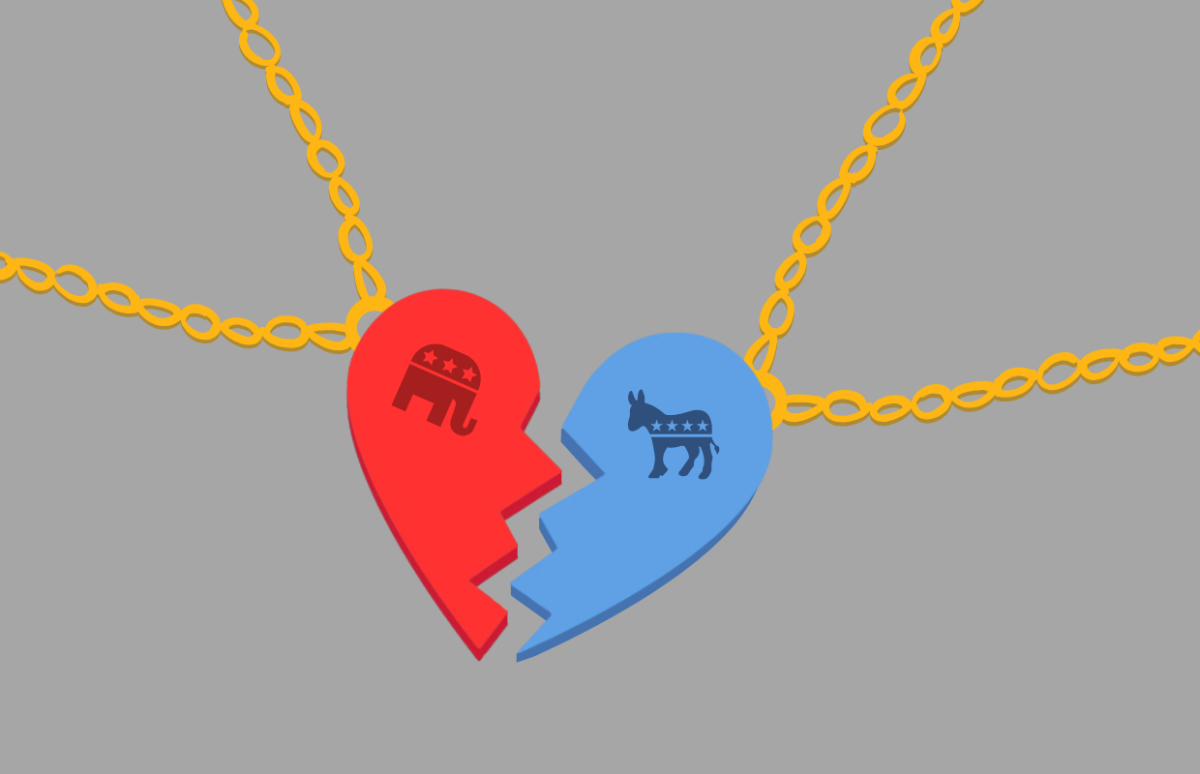
Ava Anderson
Political discussions among peers are commonplace in light of the controversial 2024 presidential election.
Political discussions among peers are commonplace in light of the controversial 2024 presidential election. As friends often hold differing views, it’s easy to slip into uncomfortable territory at the first sign of disagreement.
People may interpret their peers’ voting habits as a reflection of their fundamental moral character — often leading to disagreements and driving friends away from each other. The prevailing idea that people should set aside political beliefs to maintain friendships can only further problems and build resentment.
Politics are deeply personal for many people, with different interpretations of candidates and their policies reflecting deeply held values and experiences. For example, a first-generation immigrant could struggle with maintaining a close relationship with someone who strongly believes in harsh immigration policies. Though conflict in relationships is bound to happen, people may opt out of discussing controversial topics with their friends. However, this approach has its own detrimental effects.
Open conflict is extremely healthy in friendships and can even strengthen them. Avoiding topics of disagreement could result in a growing distance between friends and even subconscious hatred. Many people choose to let go of friends that don’t align with their political views — a study by Pew Research stated that only seven percent of Republicans and six percent of Democrats had multiple friends agreeing with the opposing party. Though politics don’t need to frame all relationships, people should feel comfortable letting go of friendships that don’t align with their moral beliefs.
President-elect Donald Trump is well-known for his controversial, hyperpartisan views. Much of his rhetoric and policy is discriminatory toward minorities; in only his first month in office, Trump signed an executive order that discriminated against Muslims and refugees. Learning that a friend supports a candidate with policies rooted in bigotry is a valid reason to distance yourself and should not be frowned upon. For minorities in particular, having to tolerate a friend who supports a candidate belittling their very existence can be extremely difficult.
While some stay silent on their political views, others are more vocal. When discussing issues close to someone’s heart, they may feel personally attacked, causing the conversation to veer into emotional territory. For example, it can be difficult for a pro-choice woman to accept someone actively against abortion. The same goes for a non-heterosexual person attempting to maintain a friendship with someone against gay marriage. It’s unfair to expect people to be friendly with someone who actively supports policies that work against their rights.
These essential disagreements can be disastrous for friendships, romantic relationships, and even family. Only nine percent of Republicans have a Democratic spouse, and only eight percent of Democrats have a Republican spouse. According to Wakefield Research, a study on the effects of political differences in relationships found that a third of participants would consider a divorce if their partner supported their opposing candidate.
In politics, healthy conversation is beneficial, but only when executed correctly. 50% of Republicans find conversations with those with whom they politically disagree stressful, with 46% of Democrats agreeing. However, just because a healthy disagreement about politics can occur doesn’t mean a friendship should continue. It’s important to be able to disagree healthily, but not in cases where it goes against core values.
People often aren’t willing to compromise their values, so they end a friendship. That decision may be labeled as dramatic but is often the healthiest decision. Friendships are essential in keeping us happy and fulfilled, so if a friendship is draining rather than rewarding due to fundamental moral disagreements, it may be time to end it.
